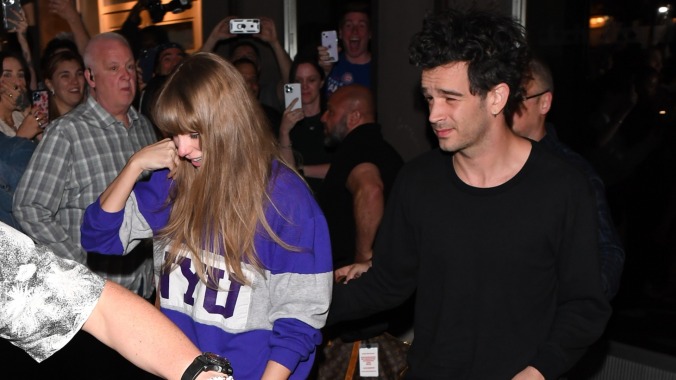Can your fans impeach your boyfriend? Taylor Swift might soon find out
Swift's new romance with The 1975's Matty Healy has mobilized and angered her fans, who are calling for Swift to distance herself from the provocative singer

Unfortunately for Gaylor truthers and the availability of Jack Antonoff’s studio, Taylor Swift and The 1975 frontman Matty Healy have reportedly begun dating in the wake of Swift’s split from Joe Alwyn, her now-former partner of six years. So far, the celebrity relationship has manifested itself in ways both usual and unusual. The blurry viral pictures of rooftop bar hand-holding are familiar; the Swifties’ surprisingly regimented attempt to no-confidence vote the relationship is new.
Alwyn and Swift’s April breakup both devastated and mobilized fans, creating the perfect conditions for what may be the first organized public call for a celebrity breakup in modern history… seriously. Uncharmed by the lore-friendly nature of the relationship, some fans have rallied behind an open call for Swift to break up with and publicly distance herself from Healy, denoted by the hashtag “Speak Up Now.” The campaign, which has been circulating social media, urges Swift to “reflect on the impact of your own and your associates’ behavior and engage in genuine reflection.” So, what’s the problem? Matty Healy, whose decade-long quest to master edgelord showmanship has started to lean racist.
 Keep scrolling for more great stories.
Keep scrolling for more great stories.
